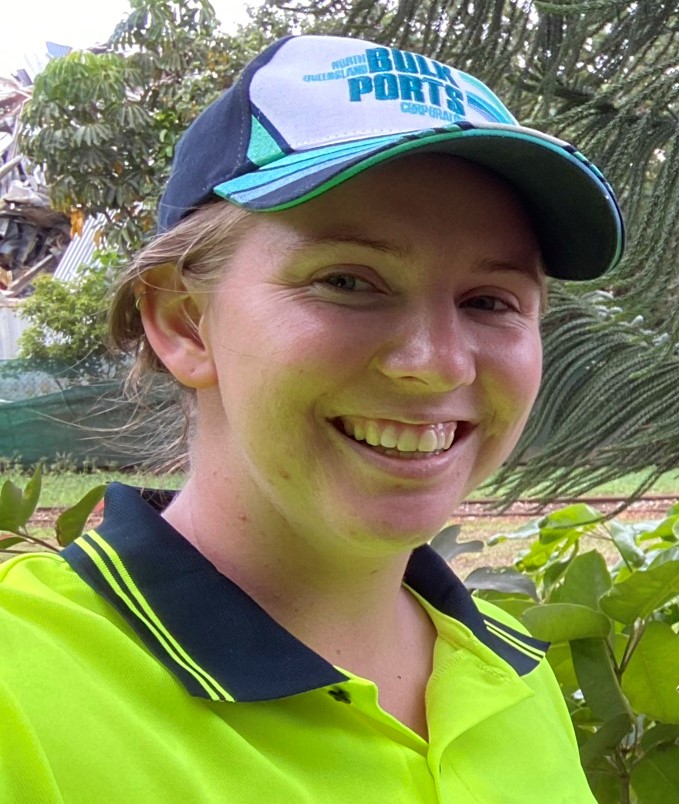
Recently, the Bachelor of Advanced Science student added an internship with North Queensland Bulk Ports (NQBP) to her growing list. Florence tells all about what it’s like to work alongside NQBP’s environment team, how drone technology could impact future research and what attracted her to applying for the port industry internship.
What experiences and skillsets did you learn during your time with NQBP?
While I was at NQBP I got to experience a great day out on the water doing field work. We performed marine pest plankton tows that will be used to test for larvae of marine pest species in the ports water. I also got a great opportunity to develop my ability to read and understand legislation and how it applies to industry operations.
How do you think your time with NQBP will benefit your academic studies and future career path?
I feel that the exposure to industry will benefit me in the future, every bit of experience helps broaden your understanding. This experience in particular has exposed me to an area I didn’t know much about and sparked my interest in learning more about it. I also think that getting to meet the amazing environment team at NQBP and hear their stories and perspectives will benefit me in my future career path.
You seem to know a lot about drones. What was it like doing your Honours on Optimising Reef Flat Sampling using Drones?
I enjoyed the work I did in my honours, I compared sampling methods when collecting imagery of reefs with aerial drones. I feel that drones are an emerging technology with huge implications for the future of marine monitoring. Whilst my honours examined sampling methods of aerial drones on reefs, at NQBP I had the opportunity of investigating the implementation of in water drones in current port reef monitoring. I think that the prospect of this is very exciting, drones can be a cost effective
I think that drone technology definitely has a place in the future of field work-based science. It allows you to get information over a much larger area than you can with field-based observations, particularly diver-based data. During my honours I didn’t actually get to go out into the field, 2020 was a weird year. I worked with data my amazing supervisors who had collected on heron reef. It was great to work with imagery of such a beautiful place.
Did working on the industry side with NQBP bring up potential fields that you may want to explore in the future either in research or management?
After my time with NQBP I am definitely interested in pursuing a career in management. I hadn’t been exposed to much industry before. I am grateful for the time I got to spend with the environmental team at NQBP, I found their perspectives on getting into a career in environmental management were really helpful in working out where to head in the future.
What was your main reason for applying for this internship?
I applied for this internship to gain a unique experience in both research and industry. I didn’t know what to expect in my time at NQBP, and I ended up learning a lot about the relationship between legislation and environmental management in industry. I definitely feel like I have gained experience in an area I haven’t been exposed to throughout my studies.
What would you say to someone who might be interested in applying for the 2022 internship?
I would say that this internship is a great opportunity, both for the opportunity to be involved in some amazing field work and get to understand the industry perspective. Applying for the 2022 internship is a no brainer.